To stop soap oxidation, you'll need to add antioxidants like Vitamin E or Rosemary Oleoresin Extract (0.5-1%) to your soap mixture. Store finished bars in cool, dark places using breathable containers that allow airflow but block light. Choose oxidation-resistant base oils like coconut and olive oil while limiting unstable oils such as sunflower. These simple strategies will protect your handmade creations from developing Dreaded Orange Spots and going rancid prematurely.
Using Antioxidant Additives: Vitamin E, ROE, and Rosemary Essential Oil
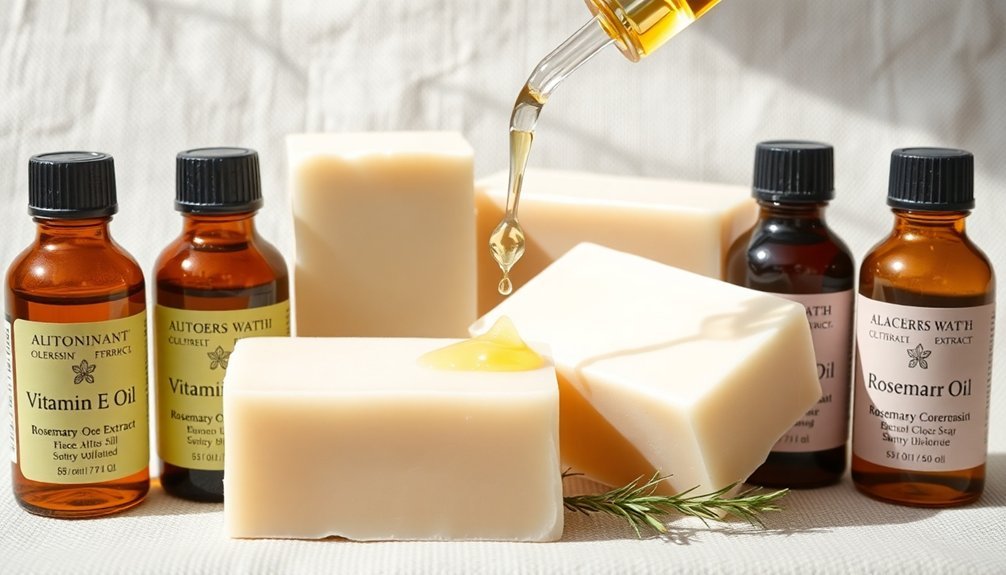
When your homemade soap begins developing an unpleasant odor or unsightly orange spots, oxidation is likely the culprit. To combat this, consider incorporating antioxidant additives into your soap making routine.
Vitamin E is a powerful protector that prevents oils and butters from turning rancid, greatly extending your soap's shelf life.
Add Rosemary Oleoresin Extract (ROE) at just 0.5-1% to effectively slow the oxidation process when mixed with your oils before soap making.
For dual benefits, try rosemary essential oil, which fights rancidity while adding a pleasant scent to your creation.
For maximum effectiveness, add these antioxidants immediately after combining your oils.
Careful measurement and documentation of these additions will help you maintain quality and prevent those Dreaded Orange Spots (DOS) that can ruin your handcrafted soaps.
Proper Storage Techniques for Extending Soap Shelf Life
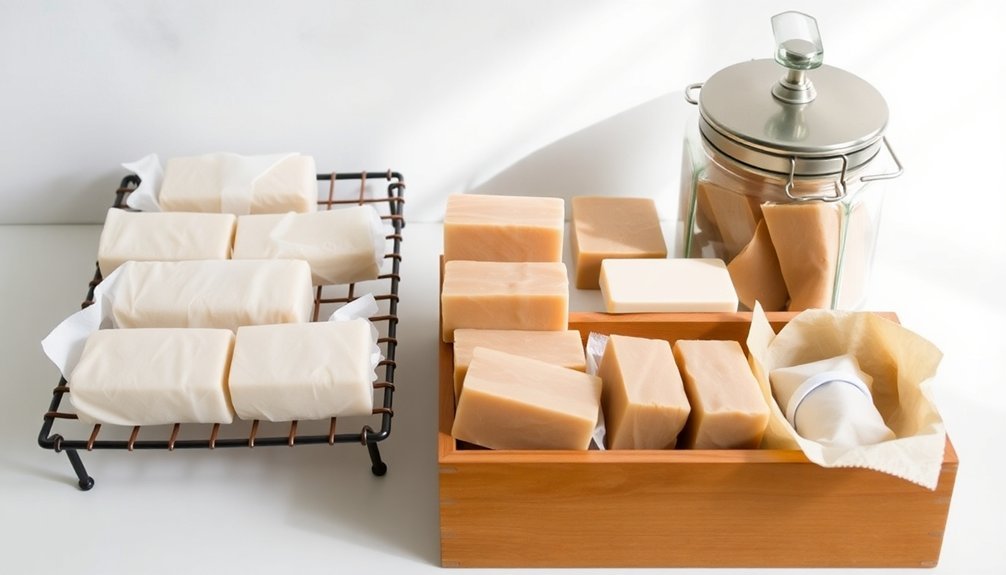
The environment where you store your handcrafted soap dramatically impacts its longevity and quality. Always store soap in a cool, dark place to shield it from light and heat exposure that accelerates oxidation.
Instead of airtight containers, use breathable bags or loosely closed paper boxes to promote airflow while protecting from dust.
Humidity is your soap's enemy—excessive moisture can trigger Dreaded Orange Spots (DOS) and rancidity. Make certain your soap is fully cured before storage to minimize moisture retention and prevent spoilage. Proper curing typically takes 4-6 weeks depending on your recipe.
Don't forget to implement a rotation system for your stored soap. Regularly check your collection and use older bars first to maintain peak freshness and enjoy your soap at its best quality.
Selecting Oxidation-Resistant Oils and Base Ingredients
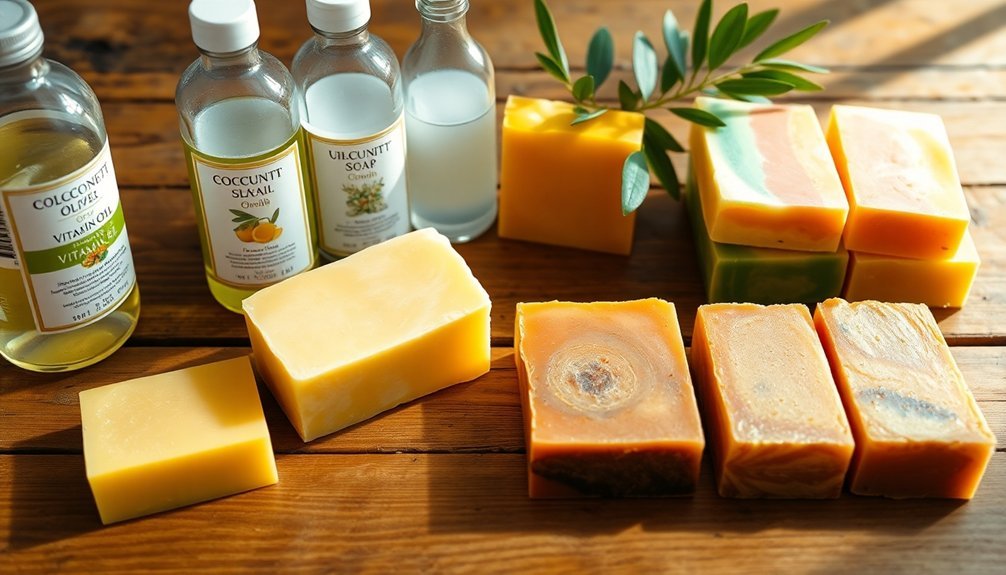
While proper storage extends your soap's life after production, choosing the right ingredients from the start creates a foundation for oxidation resistance. Focus on oxidation-resistant oils like coconut oil and olive oil, which contain higher proportions of saturated and monounsaturated fats compared to polyunsaturated alternatives.
| Oil Type | Oxidation Resistance | Best Uses |
|---|---|---|
| Coconut Oil | High | Hard, cleansing bars |
| Olive Oil | High | Moisturizing, gentle soap |
| Sunflower Oil | Low | Small percentages only |
Always select high-quality base ingredients with attention to their shelf life. Oils with lower free fatty acid content help prevent Dreaded Orange Spots (DOS) in your final product. Store oils in dark, airtight containers in cool environments, and consider incorporating antioxidants like Vitamin E or Rosemary Oleoresin Extract to greatly slow the oxidation process.
Frequently Asked Questions
How Do You Harden Soap Naturally?
To harden soap naturally, you'll want to use harder oils like coconut or palm, reduce water-to-lye ratio, add clays or silica, and cure your soap longer in a well-ventilated area for 4-6 weeks.
How to Keep Homemade Soap From Going Rancid?
To keep homemade soap from going rancid, use fresh oils, add antioxidants like ROE or Vitamin E, use distilled water, keep superfatting below 5%, and store finished bars in cool, dry places with good airflow.
How Do I Stop My Homemade Soap From Sweating?
Store your soap in a cool, dry place with good ventilation. You'll reduce sweating by using a dehumidifier, curing on drying racks, and adding sodium lactate to your recipe. Don't package until fully cured.
What's the Best Way to Store Homemade Soap?
Store your homemade soap in a cool, dark place below 70°F. Wrap it in wax paper and place in breathable containers. Avoid humidity, guarantee good airflow, and use older bars first to maximize shelf life.
In Summary
You've learned three effective ways to prevent soap oxidation: adding natural antioxidants like Vitamin E, storing your soaps properly away from heat and light, and choosing resistant base oils. By implementing these simple strategies, you'll extend your handmade soaps' shelf life and maintain their quality. Your creations will stay fresh longer, retaining their color, scent, and beneficial properties without developing that unpleasant rancid smell that comes with oxidation.
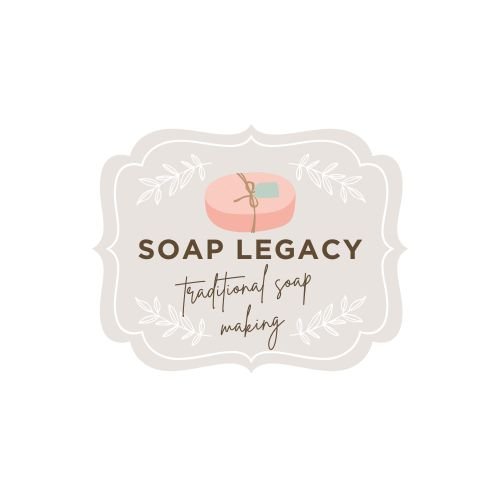
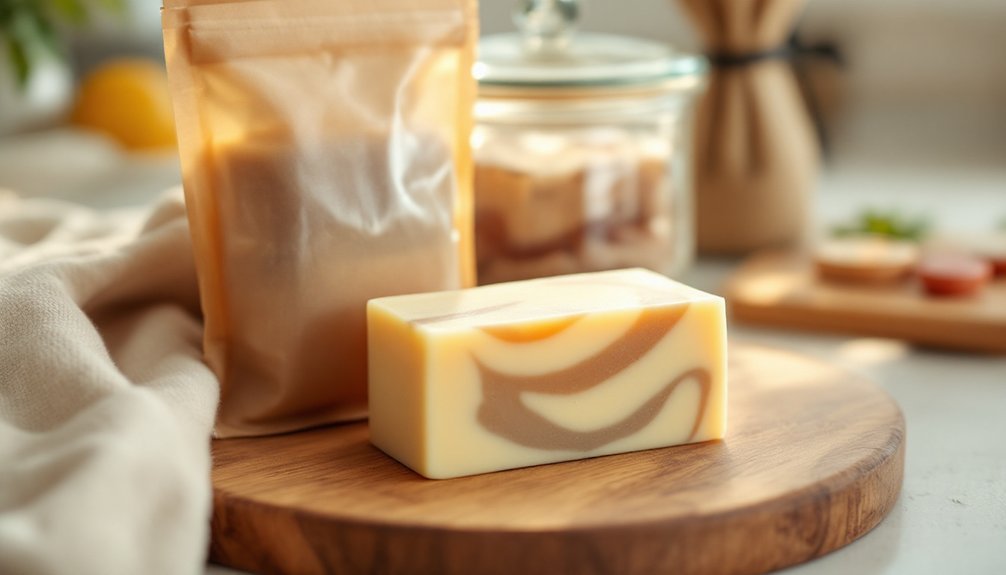

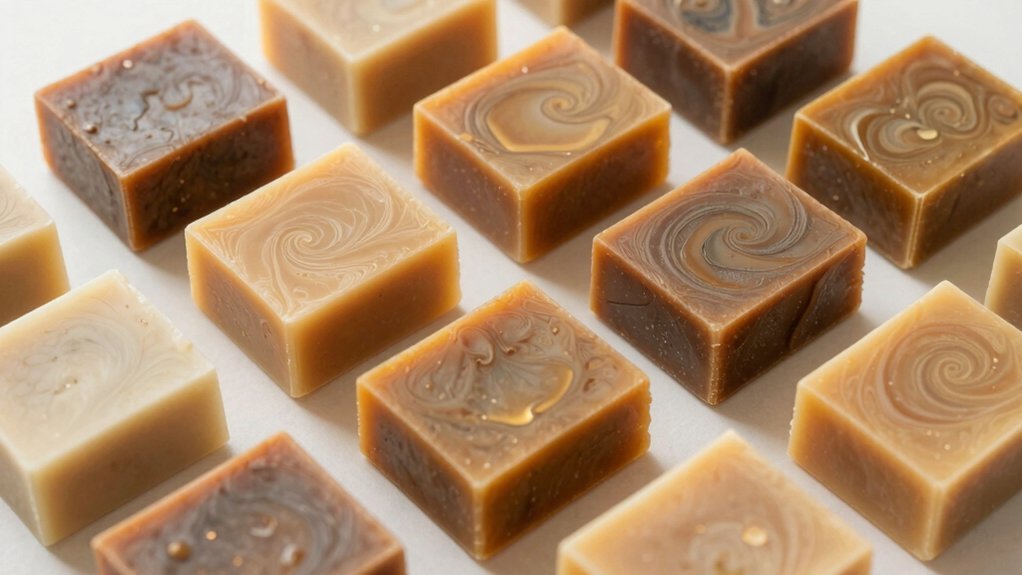
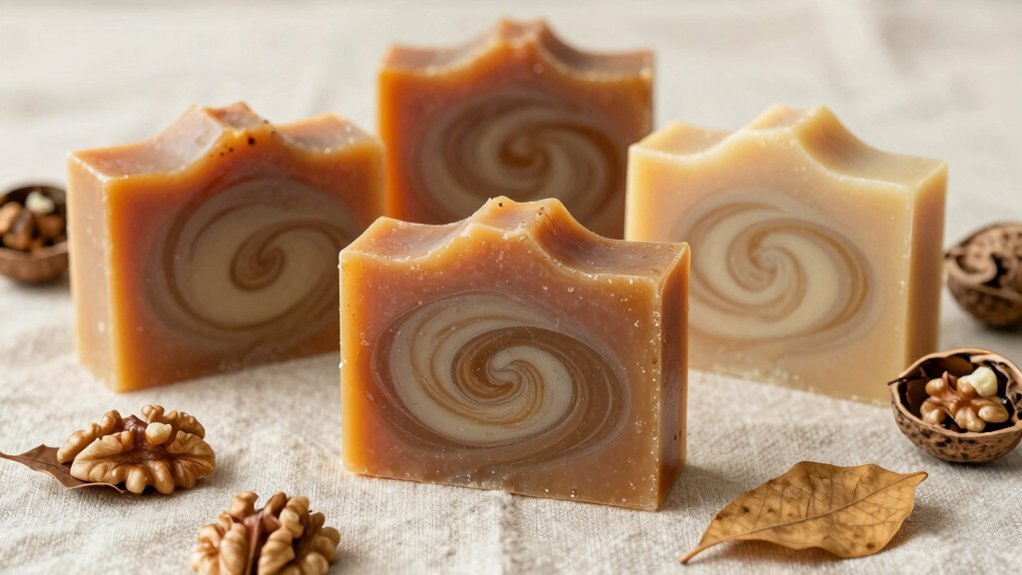
Leave a Reply